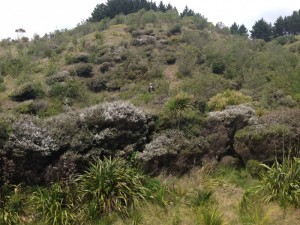The Opito Bay Environment Group is made up of residents restoring native forest to the Bay.
After some initial coastal revegetation was carried out in the late 90’s by the current farm owners, Opito Bay Environment Group was given permission in 2002 to carry on with the restoration project planting pohutukawa, flax, karo and ngaio.
Since then over 19,000 native trees have been planted. This year the group carried on with the programme and planted over 350 kauris, 250 flax’s and an additional 200 trees namely, whau, kowhai, rewarewa, totara, tawapou, taraire and puriri.

These have been planted amongst the emerging manuka, kanuka, flax and hebe stricta. In addition to the planting the group has been carrying out an extensive pest plant removal. Cotoneaster has been particularly invasive with seeds being spread by birds from bach owners’ gardens in the Bay. Funding from the Waikato Regional Council has allowed the group to purchase weed control gels and liquids for which they are very grateful. Other weeds managed/controlled are pampas, tobacco weed, wilding pines, ginger (very invasive) and arum lilies.
Animal pest control has also been carried out and funding again from the Waikato Regional Council has allowed the group to purchase traps and baits for possums, rats and stoats. Pig numbers are also increasing dramatically in the pine forests behind the Bay. Pigs are known to root out kiwi eggs from their nests if they can. In addition to our own trapping a dedicated individual living in the Bay has reported the following number of kills for the period Jan/Dec 2014: 38 stoats, 247 possums, 204 rats and 29 pigs. Wilding pines are also in issue along Blackjack Rd. A group of 14 volunteers removed pines up to 2m tall in early February from Opito to the top of the hill between Otama and Kuaotunu.
In association with TCDC (donating the plants) the group will this year begin the restoration (weeding and planting) of a 200m section of the Stewart Stream.

